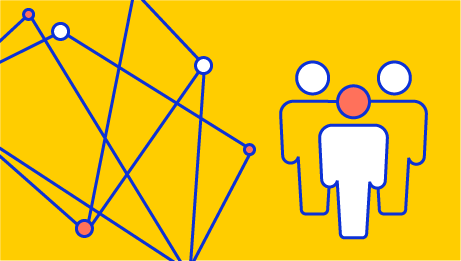Sensitive Data in the Humanities and Social Sciences

Welcome to this course which will introduce you to concepts of Sensitive Data, the different ways in which data is used in Social Science and Humanities subjects, what constitutes sensitive data in these subjects, and how to manage Sensitive Data in the context of Open Research Practices, and specifically the European Open Science Cloud. Content in this course is also applicable to other research disciplines and for a general understanding of the concepts that are presented.
Open Science
By the end of the course you will be able to:
- Recognise what constitutes Sensitive Personal Data within the Social Sciences, Humanities and Arts.
- Understand how the GDPR determines the use of Sensitive Personal Data in the context of the European Open Science Cloud (EOSC).
- Understand the best practices, including the FAIR Principles and Open research practices, in handling sensitive data in your own research (both data you produce and data you reuse).
- Be aware of additional support, organisations and tools that are readily available to enhance your own research practices around Sensitive Data within the European Open Science Cloud (EOSC).
Course structure
This course should take you no longer than an hour to compete. It is divided into three main learning sections, outlined as follows;
Section 1 Introduces the 3 key concepts discussed throughout the course: Concept 1. Open Research Practices, Concept 2. European Open Science Cloud (EOSC) and Concept 3. Personal and sensitive personal data including The Research Data Alliance Sensitive Data Interest Group’s definition. This section concludes with an important note on 'Nomenclature'.
Section 2 Introduces you to how scholars within the Social Sciences and Humanities identify ‘data’, and what kinds of materials and resources may be considered ‘sensitive data’ in these disciplines. It also discusses the GDPR legislation and the impact this has had on the way in which data is collected, stored and managed by researchers.
Section 3 Then continues to show more practical approaches to ensuring best practice in handling sensitive data in the context of Open Science, including the creation of data with Open Science in mind. It then discusses the best practices and international efforts that have been taken to ensure that sensitive data is used and reused responsibly.
For each section we have provided a range of supporting resources that you can use to broaden your knowledge of Sensitive Data in the Humanities and Social Sciences. These resources can be found in the supporting resources section and are signposted throughout.
We recommend you access them in your own time as points of reference to further your learning, as opposed to the designated content throughout the 3 main learning sections of the course itself. Within the supporting resources section you'll also find additional support in place to help researchers which we hope you will also find beneficial.
Data Protection
ELSI
Ethics
GDPR
Legal Issues
Open Science
Sensitive Data
Citizen Scientists
Data Stewards
Research Communities
Research Groups
Research Managers
Research Networks
Research Organisations
Research Projects
Researchers
Students
CC-BY
Interactive
Quiz
Video